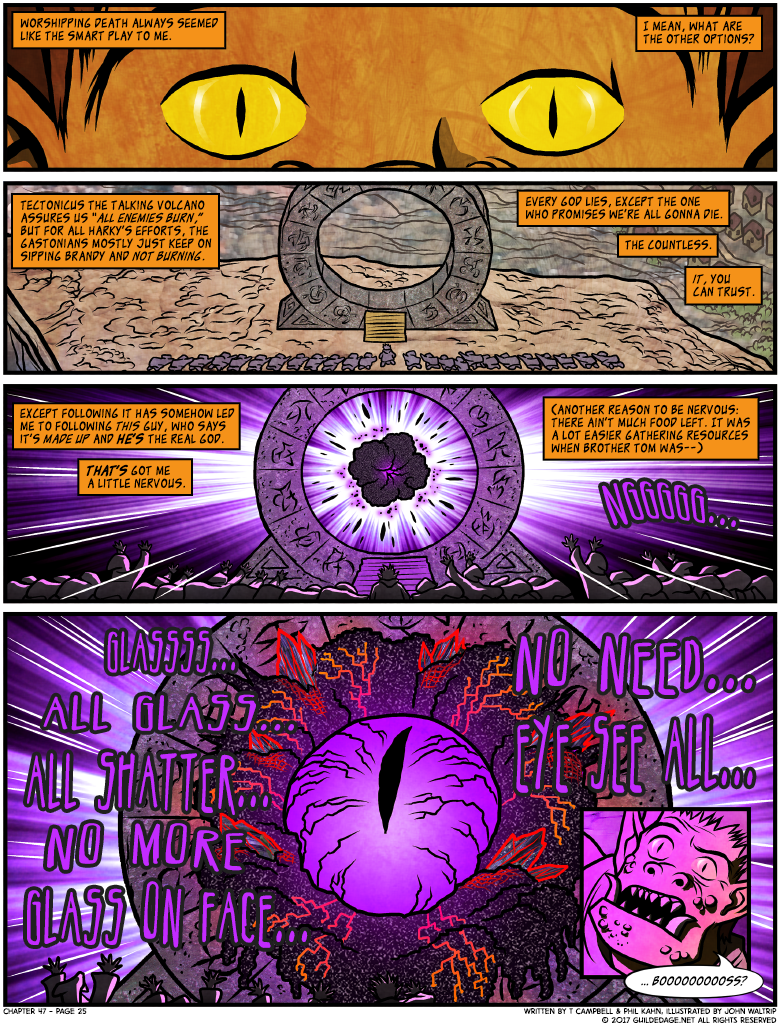Annotated 47-25
 I had a good time letting Ulak give an accounting of himself here. I think of him as a bad-guy version of C.S. Lewis: an intellectual who finds it rewarding to think his way through his faith, whereas a lot of his contemporaries simply use that faith as a substitute for independent thought. But that independent thought always means that he and his faith may not remain besties for life. And recent events are sharpening his doubts.
I had a good time letting Ulak give an accounting of himself here. I think of him as a bad-guy version of C.S. Lewis: an intellectual who finds it rewarding to think his way through his faith, whereas a lot of his contemporaries simply use that faith as a substitute for independent thought. But that independent thought always means that he and his faith may not remain besties for life. And recent events are sharpening his doubts.
(Some recent events, he just doesn’t know about, as shown by the way he thinks of Harky’s leadership in the present tense.)
FB: We’re all concerned about the state of journalism, but it was still a bit of a shock when CBS News switched to a J-horror format.











Surely the Countless are they/them instead of it/it?
They/them implies agency, animus.
A force of entropy and destruction would surely first destroy its own self, right?
This time around I’m really appreciating what a great transition it is between Frigg’s extremely good line in the last panel directly to the god in question.
Either I completely forgot what it was HR hated about his glasses or I completely lost track of the “glass on face” thing going on here.
Kingdom of Arkerra is a computer game. Hence, “Glass on face” = the computer displays users would view the game on.
I don’t think he hated them, although I’m also not quite sure just what has happened here.
My best guess is that although HR has tried to absorb the power of the corruptor beast, he’s also kind of absorbed some of its mental patterns, as well as those of some of the berzerker spirits’.
Which means that he’s not quite himself anymore, not really able to think through his own plans, and might have started to become annoyed with the glasses which most of the beings that now constitute him have never had before, therefore might find irritating.
The mouse-over text is confusing me a little here: Is that just a complicated way of stating that yeah, humans are sipping brandy and not burning, or yes, they are in fact burning (or at least their throats are because that’s what brandy does to one’s throat)?
Silly flaw of the English language, to lack a word to unambiguously indicate disagreement with a negated statement. (which I heard it used to: “yeah” to indicate agreement with a positive statement, “nay” for disagreement; “no” for agreement with a negative statement, yes for agreement.)
…or was it “aye” for agreement with a positive statement?